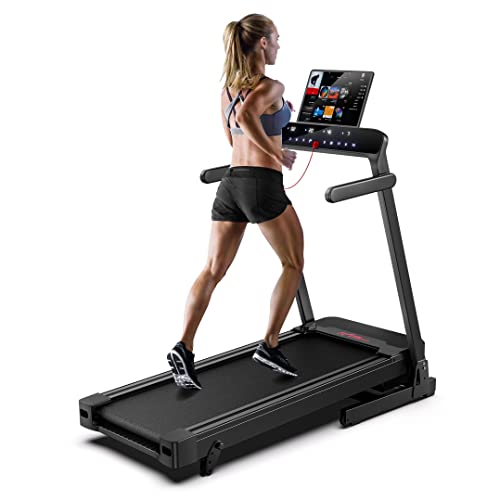Ten Things Everyone Misunderstands About Walking Machine
The Walking Machine: A Comprehensive Guide to Your Fitness Companion
In today's fast-paced world, where time is a high-end, maintaining a consistent exercise regimen can be a challenge. For lots of, a walking machine— frequently referred to as a treadmill— works as an ideal physical fitness companion. This article offers an in-depth appearance at walking machines, including their benefits, types, maintenance tips, and frequently asked questions.
Why Choose a Walking Machine?
Walking machines use a practical and effective way to include cardiovascular exercise into everyday life. Here are a number of key benefits:
- Convenience: Walking machines permit individuals to work out anytime, no matter weather or time restraints. They are best for busy schedules.
- Adaptability: Users can stroll, jog, or run at their own pace and strength.
- Security: Walking machines provide a lower threat of injury compared to outside walking or running, particularly for newbies or those recuperating from injuries.
- Tracking Progress: Many treadmills come with integrated screens that track metrics like speed, range, and calories burned.
Types of Walking Machines
When thinking about a walking machine, it's important to pick the best type based upon private fitness goals and area constraints. Below are the main kinds of walking machines:
Type
Description
Handbook Treadmills
These machines do not have a motor, and users require to stroll or go to turn the belt.
Electric Treadmills
Powered by an electric motor, permitting users to set the speed and slope effortlessly.
Folding Treadmills
Created for simple storage, these treadmills can be folded when not in usage.
Desk Treadmills
Perfect for a dual work and workout environment, these compact machines permit walking while working.
Incline Trainers
These enable users to mimic uphill walking, enhancing exercise strength and calorie burn.
Choosing the Right Walking Machine
Selecting the best walking machine can substantially affect inspiration and efficiency. Here are some elements to think about:
Key Features to Look For
- Motor Power: An effective motor guarantees a smooth and constant workout. For occasional walkers, a 1.5 HP motor is usually adequate; for heavier usage, search for 3.0 HP and above.
- Belt Size: A wider and longer belt offers more area for a comfy stride. Standard sizes range from 16 inches broad and 50 inches long.
- Incline Options: Adjustable slope settings can simulate walking or running uphill, increasing the strength of the workout.
- Shock Absorption: Good shock absorption decreases the danger of joint injuries and boosts comfort.
- Console Features: Look for integrated exercises, heart rate monitors, and connectivity functions like Bluetooth for a more interesting experience.
Budget Considerations
Walking machines been available in a large range of prices, depending on features and construction quality. Here's a rough budget plan breakdown:
Price Range
Features
Under ₤ 300
Basic manual or small electric treadmills with minimal functions.
₤ 300 – ₤ 700
More sophisticated electric treadmills with incline, medium power motors, and better service warranties.
₤ 700 – ₤ 1500
Top quality electric treadmills with bigger built-in screens, extensive functions, and warranties.
₤ 1500 and above
High-end models providing sophisticated technology, functions, and long lasting building for major physical fitness lovers.
Upkeep Tips for Your Walking Machine
To guarantee durability and optimal performance of a walking machine, consider the following upkeep tips:
- Regular Cleaning: Dust and sweat can collect on the machine and the belt. Clean down get more info and clean the belt routinely.
- Lubrication: Depending on the design, lubing the running belt periodically can avoid wear and tear. Check the producer guidelines for advised lubrication schedules.
- Assessment: Periodically examine the machine for loose screws or used parts. Tighten and change as required.
- Calibration: Occasionally, inspect the calibration of your machine's metrics to ensure they offer precise information.
- Appropriate Use: Follow the manufacturer's suggestions for weight limits and operational guidelines.
FAQs About Walking Machines
1. Are walking machines a great workout?
Yes, walking machines supply an excellent cardiovascular workout, can assist with weight reduction, and enhance total health.
2. How frequently should I use a walking machine?
Go for a minimum of 150 minutes of moderate-intensity aerobic activity each week, which can quickly be achieved with regular sessions on a walking machine.
3. Can I reduce weight on a walking machine?
Yes, integrating a walking machine routine into a healthy diet can promote weight-loss, particularly if integrated with periods and incline training.
4. Is it safe for senior citizens to utilize a walking machine?
Yes, walking machines can be safe for seniors with low-impact settings and safety features like handrails. Nevertheless, individuals need to speak with their doctor before starting any exercise program.
5. What's the distinction in between a treadmill and a walking machine?
The term “walking machine” normally describes a treadmill intended for walking, while “treadmill” can refer to machines utilized for various strengths, including running.
With their versatility and benefit, walking machines can substantially boost one's fitness journey. By carefully picking the right type, making sure correct maintenance, and incorporating different exercise methods, users can optimize their walking machine's benefits. As with any workout routine, consistency is essential to attaining enduring physical fitness results.
